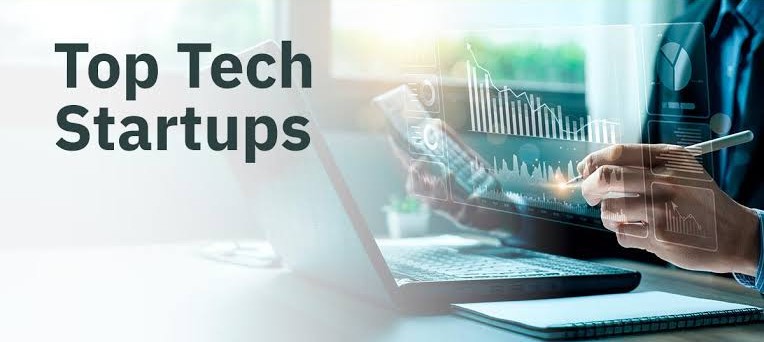These ten startups are not only advancing technology but also solving real-world problems in health, energy, security, and communication. Each company reflects a growing emphasis on ethical innovation, sustainability, and user empowerment.
In the dynamic world of technology, innovation thrives where bold ideas meet practical execution. As of June 2025, a new wave of startups is reshaping the landscape, tackling global challenges through creative applications of artificial intelligence, blockchain, biotechnology, and clean energy. These companies are not only attracting the attention of investors and consumers but are also laying the foundation for future industries. Here is a detailed look at ten of the most promising tech startups to watch in 2025, ranked from ten to one based on their potential impact, innovation, and market momentum.
10. HelixGen Solutions
HelixGen Solutions is a synthetic biology and AI-driven genetics startup based in Cambridge, UK. The company focuses on creating predictive gene therapies for rare and hereditary diseases. Using machine learning to map genetic disorders and simulate protein folding, HelixGen offers tailored treatment solutions that adapt to individual genomes. Its recent partnership with major pharmaceutical firms and regulatory fast-tracking in the UK and EU have positioned it as a leader in precision medicine.
9. VoltEdge
VoltEdge, headquartered in Berlin, is leading innovation in the smart battery and grid storage market. As the demand for renewable energy grows, VoltEdge has developed a modular, AI-optimized battery system that stores excess solar and wind energy with maximum efficiency. Their smart grids use machine learning to predict energy consumption patterns and distribute electricity in real-time, reducing waste and stabilizing supply in urban areas. VoltEdge is already working with several European cities to integrate their solution into public infrastructure.
8. EchoSynth
EchoSynth is a U.S.-based startup that is redefining how artificial intelligence interprets and generates music. Unlike traditional audio generation platforms, EchoSynth uses a neural engine that understands musical emotion, genre styles, and even artist-specific signatures. This makes it a valuable tool for composers, advertisers, and content creators. In early 2025, the company launched a platform that allows musicians to co-create with AI in real time, gaining traction in both independent and commercial music scenes.
7. DeepMatter AI
Based in Singapore, DeepMatter AI is pushing boundaries in the field of ambient computing. The startup is developing intelligent sensors and embedded AI chips that make physical environments context-aware. Their flagship product allows smart homes, offices, and public buildings to detect human intent and behavior without requiring voice commands or touchscreen input. These ambient systems adjust lighting, temperature, and digital interfaces based on real-time observation, enhancing accessibility, energy efficiency, and convenience.
6. ClearLoop Technologies
ClearLoop Technologies is taking the blockchain world into a new era with its focus on decentralized digital identity. Headquartered in Toronto, the startup is building a secure, interoperable framework that allows individuals to own and control their online identities. In an age of increasing data breaches and privacy concerns, ClearLoop offers solutions for authentication, voting, education credentials, and even decentralized finance (DeFi) onboarding. Their system is already being tested by governmental and healthcare institutions in Canada and the Nordic region.
5. SensoLink Robotics
SensoLink Robotics, based in Tokyo, is revolutionizing tactile robotics for healthcare and elderly assistance. The company has created ultra-responsive robotic limbs and exoskeletons that use haptic feedback and real-time AI learning to adapt to user needs. These assistive robots are already being used in rehabilitation centers and elderly care homes in Japan, showing great promise in enhancing mobility and autonomy for patients. Their expansion into Western markets is expected in late 2025.
4. NovaSpect Imaging
NovaSpect Imaging is an Israeli-American startup focusing on AI-powered medical diagnostics. Its compact imaging device uses machine vision and infrared scanning to detect early signs of cancer, infections, and organ issues with high precision. The system is designed for use in under-resourced clinics, offering an affordable, portable diagnostic tool for early intervention. NovaSpect’s platform is currently in trials with healthcare providers across Africa, Southeast Asia, and South America.
3. AeroFlux Dynamics
AeroFlux Dynamics is a California-based aerospace startup that develops low-orbit autonomous drones for logistics and environmental monitoring. Unlike traditional drones, AeroFlux’s aircrafts use real-time AI navigation, solar-assisted propulsion, and modular payload systems. Governments and private organizations are already deploying these drones to monitor forest fires, deliver emergency supplies in remote regions, and survey coastal erosion. With growing concerns around climate change and disaster preparedness, AeroFlux is becoming a critical player in geo-tech and humanitarian logistics.
2. Quantina Labs
Quantina Labs, a Zurich-based quantum computing startup, is building a new class of hybrid processors that combine classical computing with quantum bits (qubits) for practical applications. Unlike pure quantum solutions that remain largely experimental, Quantina’s processors enhance existing cloud computing systems with quantum acceleration. Early use cases include drug molecule simulation, logistics route optimization, and financial market prediction. With strategic backing from several European tech firms and universities, Quantina is rapidly approaching commercial viability.
1. NeuroNext Interfaces
At the top of the list is NeuroNext Interfaces, a San Francisco-based neurotechnology company that is redefining the relationship between human cognition and machines. Their non-invasive brain-computer interface (BCI) allows users to control digital devices through thought. Unlike older BCI models, NeuroNext uses ultrafine neural sensors and machine learning algorithms to translate brain signals into complex commands in real time. Early trials have shown promise for patients with motor impairments and speech disorders. Beyond healthcare, the company is exploring applications in gaming, education, and hands-free computing. With strong backing from both private investors and government innovation funds, NeuroNext stands as one of the most groundbreaking tech startups of 2025.
